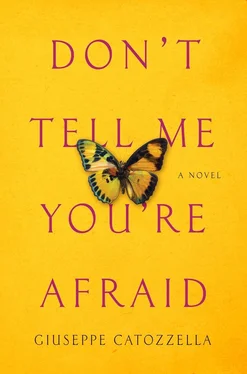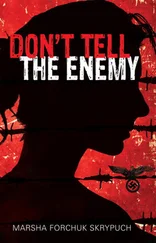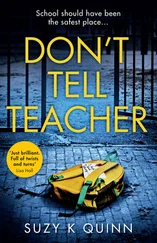Yassin was desperate. At first he did everything he could to try to help him. He’d even offered to make the trip to the market twice, once with his cart and a second time with Aabe’s. Then he gave up; he saw that it would take time. A long time, an infinite time.
It took three months.
One evening, after supper, while we girls were playing shentral, Aabe asked Yassin to go get the cards; he wanted to play a game.
It was the first time he’d spoken to someone since it had all happened.
Yassin as usual was near the burgico, staring at the coals flickering and crackling.
When he heard Aabe speak, he stood up and, without saying a word, went to get the cards and table and brought them to where his friend was sitting.
They played three hands of scopa, a card game that the Italians had taught their fathers and that some people still knew. They played without saying a word.
Then Aabe won, or Yassin let him win (no one was ever able to say), and Aabe banged his fist on the table and said in his deep voice: “A toast! To your usual shameless good luck. I lose a foot and win at scopa. May a thousand liters of boiling shaat fall on your head.”
From that day on, slowly but surely, everything went back to being the way it had always been.
Aabe and Yassin became best friends again and, with their friendship, everything else fell into place.
One evening, when Aabe had grown used to going out and being seen in the neighborhood with the cane that he still despised, Yassin came to our parents’ room.
After a while we were all called in; Yassin wanted us to hear.
In a broken voice he said that he would be indebted to our family for the rest of his life and that he would like to take care of us but didn’t know how he could; his resources were barely enough for his children.
Then he took an envelope from a pouch and handed it to Hooyo.
She looked at Aabe, who nodded; then she opened it. It contained money.
“It’s all I have,” Yassin said, “but I beg you to accept it in front of your family as a symbol of my gratitude for having saved me, brother Yusuf.”
Aabe looked at him in silence with a faint smile on his lips. “Call your children in, but first dry those tears,” he told him as he settled himself comfortably in the wicker chair.
When Alì and his brothers arrived, Aabe cleared his throat. “It is thanks to you, my friend,” he began, “that I am still alive to realize that this war cannot be right.”
Yassin’s sons looked at one another.
Nassir had sat down on the ground and Alì had gone to sit between his legs; he looked up at Aabe, not understanding what was happening.
“How is it possible that my brothers can almost kill an Abgal like themselves?” Aabe went on, drawing Alì’s attention. “This stump is testimony to the fact that the war cannot be right.”
Then Aabe called me and Alì into the center of the room.
He ordered us to shake hands and hug each other.
We were bewildered. Alì, withdrawn as usual, didn’t tear his eyes away from his bare feet.
Then he obeyed. He held out his hand without looking at me.
I shook it.
“Now promise me,” Aabe continued, “that you, an Abgal, and you, a Darod, will live forever in peace. That you will never hate each other and never hate the other clans.”
Hands still tightly clasped, we promised.
Then Aabe asked if we knew that war was the result of hatred that makes people blind and content only with blood.
Together we said yes.
Finally he asked: “Do you know that we are all Somali brothers, regardless of tribes and clans? Well, Samia? Alì?” he thundered like when he was angry. “Do you know that?”
“Yes,” Alì said in a faint voice, still staring at the floor.
“Yes,” I echoed him.
Then Aabe asked Hodan to sing us a song, there in the bedroom.
There were so many of us, packed in tightly. Fourteen people crowded in a small room with two mattresses on the floor and mud walls, talking about peace and hope while outside there was a war.
This too was Aabe.
• • •
MY MOTHER HAD already made up her mind, and in any case there weren’t many alternatives.
She didn’t like the idea of selling men’s clothes; she said it wasn’t a proper job for a woman. So, after repeated urging by Yassin, she decided that she would start selling fruits and vegetables.
At first Yassin gave her his produce to sell.
Then she gradually began to acquire it on her own, buying it in the evening from the farm workers in the area, at the same prices Yassin paid after twenty years of work.
Some weeks later, Hooyo went along with a woman friend who had a stall in another district, off limits to the Darod but even busier than Xamar Weyne: Abde Aziz.
And she became a fruits and vegetables vendor.
We lived that way for more than a year, poorer than we’d ever been, until everything changed in my life and Hodan’s.
I won my first race and she got engaged to Hussein, a Darod boy from a good family who played in her band.

THE DAY I TURNED TEN was also the day of the race through the city’s districts. The war was increasingly violent, and everything was becoming more difficult, even organizing the annual race, which for me was the most important thing in the world: In fact, sixteen months had passed since the previous one, rather than twelve. With the war, even the length of a year changed: Time stretched out as the violence dragged on.
Throughout that period Alì was a good coach.
He knew when to force me to go on exercising even though I’d had enough, and at the same time he understood how to motivate me.
I trained and trained during those months; I wanted to win at all costs.
To win for me. To win to prove to myself and everyone else that the war could put an end to some things but not everything. To win to make Aabe and Hooyo happy.
Aabe must have sensed my agitation because that morning he called me over to him and told me that he knew one day I would become a champion. He had never said anything like that before. He’d been tender at times, but he had never gone so far as to encourage me.
From the pocket of his khaki pants he pulled out a white Nike headband, the kind you wear over your forehead to absorb the sweat.
It must have been left over from the clothes that he was no longer able to sell, piled up along with a thousand other odds and ends in the big room next to that of Alì and his brothers.
I hugged him tightly. His cane, leaning against the back of his wicker chair, almost fell over.
“Samia, if you win today, I promise you that the next race you run will be with a pair of new sneakers,” he said, settling the band on my head as if it were a crown.
I couldn’t believe my ears.
A new pair was something I had never even dreamed of owning. I was running with sneakers that no longer fit Said and that had already been worn by Abdi and Shafici. This meant that the right shoe had a hole at the toe and the left had a sole so worn that it was like running barefoot. I felt everything I stepped on: pebbles, seeds, branches, twigs, everything. And I lost my concentration, because I had to be careful to steer clear of animal bones or cans of motor oil tossed along the street and watch out for crevices or deep, gaping holes in the ground.
“I promise I’ll do everything I can to deserve the shoes, Aabe,” I vowed, touching the terrycloth headband with my fingers to convince myself it was real.
“Just how far do you hope to go, hmm?” he asked me, squeezing my cheeks with his big hand and wagging my face from side to side. He was joking, but I took it seriously, as always when it came to running.
Читать дальше





![Ally Carter - [Gallagher Girls 01] I'd Tell You I Love You But Then I'd Have to Kill You](/books/262179/ally-carter-gallagher-girls-01-i-d-tell-you-i-lo-thumb.webp)







